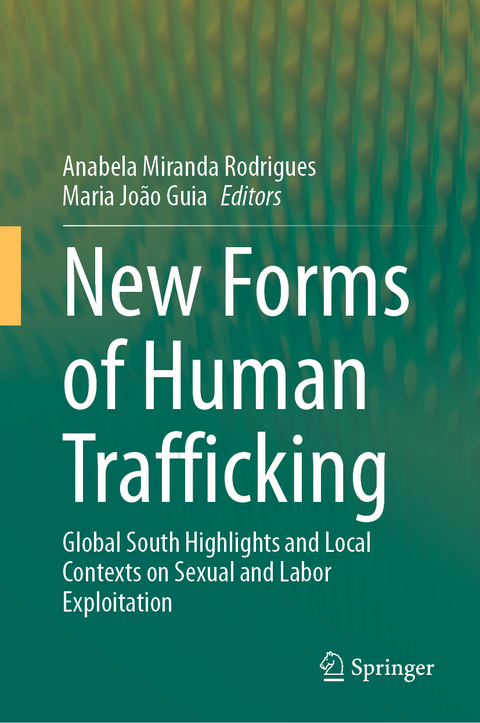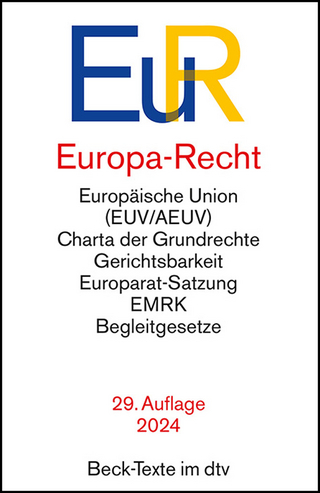
New Forms of Human Trafficking
Springer International Publishing (Verlag)
978-3-031-39731-8 (ISBN)
This book analyses new forms of human trafficking taking into account the transposition of the Directive 2011/36/UE which sets out minimum standards to be applied throughout the European Union in preventing and combating trafficking in human beings and protecting its victims. Sexual exploitation of trafficked persons is at its highest rate. After COVID-19, new forms of sexual exploitation have been identified, specifically in the Global South. The book analyses new forms of exploitation used by traffickers to coerce victims. Combining the perspectives of academic researchers with those of highly skilled professionals from governmental institutions, this book is a unique contribution, promoting collaboration in preventing and combating human trafficking crime, and in raising awareness of this ongoing problem.
lt;p>Anabela Miranda Rodrigues is Professor of Law, Criminal Procedure and European Criminal Law at the Law Faculty of the University of Coimbra. She has served as Chair of the Commission for the Prison Sentence Reform and Chair of the Commission for the Reform of Legislation on Educational Guardianship Process. She is a permanent collaborator of the Portuguese Criminal Science Journal and of the Journal of Legislation and jurisprudence of the Law Faculty of the University of Coimbra. She is Researcher of the Centre for Legal Research at the University of Coimbra. She is a member of the International Association of Penal Law and a voting member of the International Penal and Penitentiary Foundation. Furthermore, she is Vice-President of the International Society for Social Defence and President of International Association of Penal Law- Portuguese Group. She is also President of the Institute of Economic and European and International Criminal Law of the Law Faculty of the University of Coimbra. She was director of the Center of Legal Studies (CEJ - National School for Magistrates of Portugal) and of the Law Faculty of the University of Coimbra.
Maria João Guia is PhD in "Law, Justice and Citizenship in the XXIst Century" at the University of Coimbra, Portugal, Master in Criminal Law, Master in Strategic Border Management, Master in Translation and Master in Sociology. She is Integrated Researcher of the Centre for Legal Research and Associate Researcher at the Center of Human Rights, both at the Faculty of Law, University of Coimbra; Researcher of Ratio Legis (Center of Research and Development of Legal Sciences of the Universidade Autónoma de Lisboa [Project: Corpus Delicti - Studies in Transnational Organized Criminality], and Invited Professor of Criminology in UAL. She has been a European Commission external expert in the area of "Security, Liberty and Justice (2014)" after being an alternate member of the Group of Experts on Trafficking in Human Beings. She is an expert on the European Migration Network (EMN), was Director and founder of CINETS - Crimmigration Control International Net of Studies and has been serving at EU level.
Chapter 1. "Don't Give Me Moral, but a Social Ideal": From the Social Condemnation of Prostitution to the Criminalisation of Sexual Exploitation: Pimping and Human Trafficking in the Portuguese Penal Code.- Chapter 2. Cross-Border Organized Crime and Human Rights: The Awfulness of Trafficking in Human Beings. Chapter 3. Combating Human Trafficking in South Africa.- Chapter 4. Human Trafficking Policies in Scandinavia: What Happens When International Obligations Meet National Problem Definitions?.- Chapter 5. Fight Against Human Trafficking in Poland: From Theory to Practice.- Chapter 6. The Silenced Coercion of Voodoo over Nigerian Women Trafficked from West Africa to Europe.- Chapter 7. Transvestites and Transwomen in Human Trafficking for Sexual Exploitation: A Study In Brazil.- Chapter 8. Romania - Trendstetter in European Human Trafficking?.- Chapter 9. Individuals Treated As Nonpersons and the Challenge to Criminal Justice: The Specific Problems Facing Victims of Trafficking in Human Beings.- Chapter 10. Trafficking in Human Beings as an Hourglass Paradigm.- Chapter 11. The Formal Institutions of Control and the Victims of Human Trafficking: From Frequency to Impunity.- Chapter 12. Human Trafficking in Slovenia: Contemporary Issues.- Chapter 13. How Organized is Labour Trafficking? On the Involvement of Organized Criminal Groups in Labour Exploitation.- Chapter 14. Human Trafficking in Brazilian Law: The New Legal Definition.- Chapter 15. Trafficking in Persons vis-à-vis the Recent Jurisprudence of the Inter-American Court of Human Rights: Lessons for Brazil.
| Erscheinungsdatum | 06.03.2024 |
|---|---|
| Zusatzinfo | X, 285 p. 6 illus., 5 illus. in color. |
| Verlagsort | Cham |
| Sprache | englisch |
| Maße | 155 x 235 mm |
| Themenwelt | Recht / Steuern ► EU / Internationales Recht |
| Sozialwissenschaften ► Politik / Verwaltung | |
| Schlagworte | Coercion of Victims • criminal justice • Directive 2011/36/EU • European migration • Frontex • Human Rights • Human Trafficking • illegal business • Inter-American Court of Human Rights • Labor Exploitation • Labor Trafficking • Portuguese Criminal Code • Sexual Exploitation • Trafficking in Human Beings and Protecting Its Victims • Violence |
| ISBN-10 | 3-031-39731-2 / 3031397312 |
| ISBN-13 | 978-3-031-39731-8 / 9783031397318 |
| Zustand | Neuware |
| Informationen gemäß Produktsicherheitsverordnung (GPSR) | |
| Haben Sie eine Frage zum Produkt? |
aus dem Bereich


